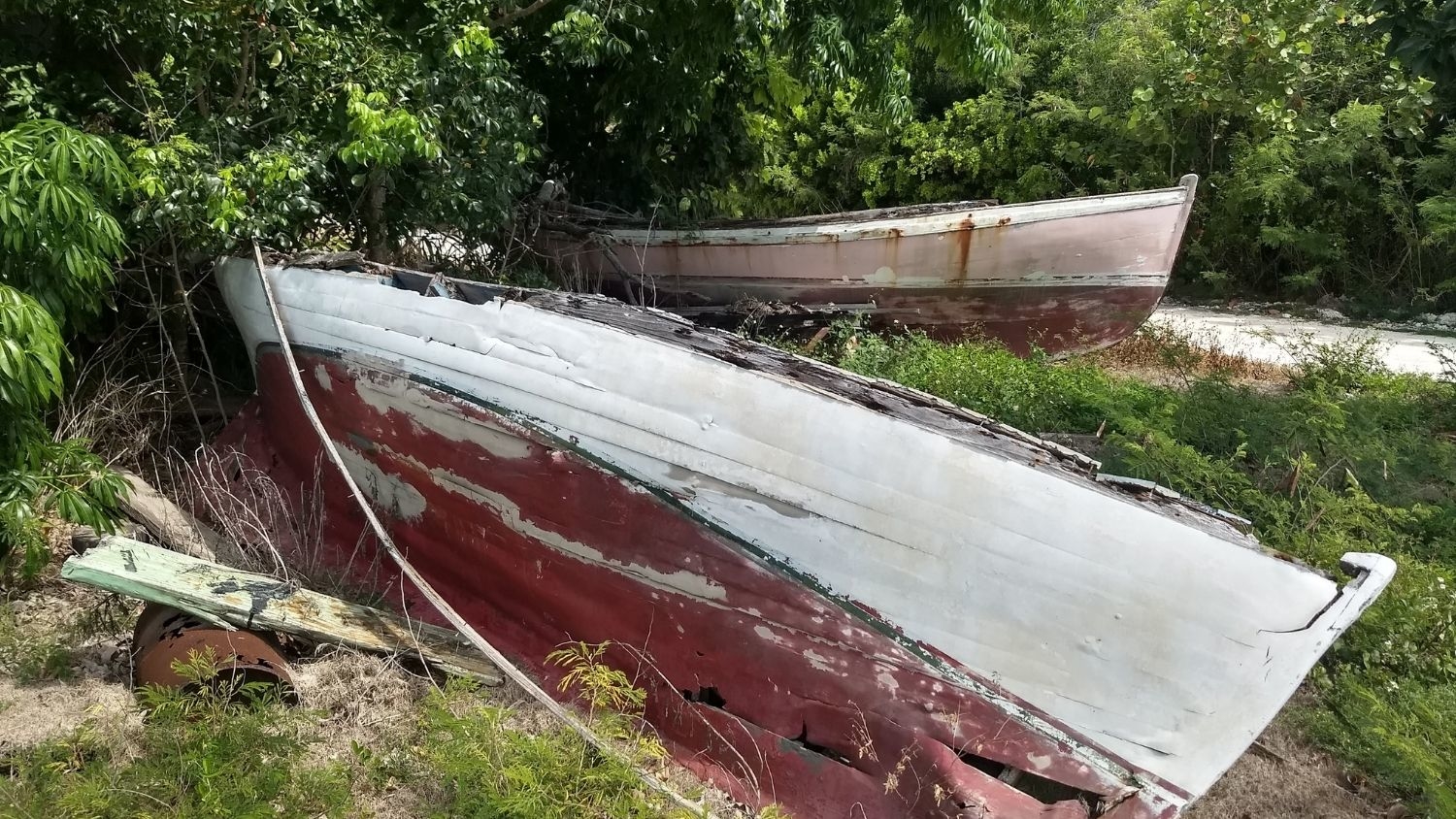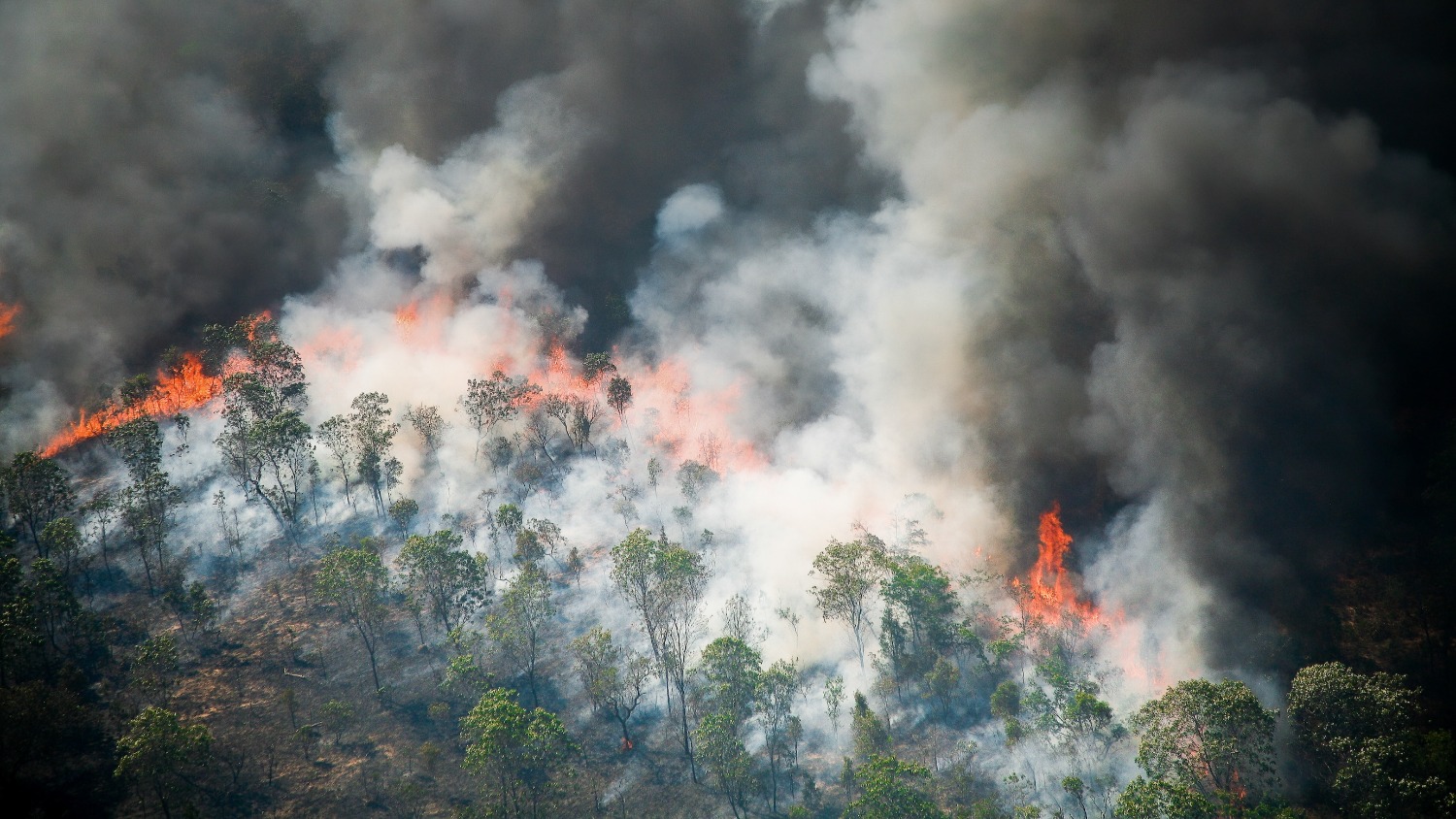Interviews with fishermen and women on Andros, the largest island in the Bahamas, reveal how tourism and modern development helped change the island’s culture and environment. The island, which contains undeveloped natural areas with high biodiversity and important ecological features, has a history of artisanal fishing.
The findings, published in Ocean and Coastal Management, were drawn from interviews with 31 Andros residents between the ages of 49 and 90 years. Researchers found that tourism-related changes to fishing helped fuel environmental degradation and changed the culture in line with a theory called the “treadmill of production,” wherein faster and faster environmental exploitation is required to fuel economic growth.
The Abstract sat down with the study’s lead author Will Casola, graduate student in the NC State Department of Forestry and Environmental Resources, and co-author M. Nils Peterson, professor of forestry and environmental resources at NC State, to talk about the case study.
The Abstract: Why did you study fishing practices on Andros?
Casola: Andros is a fascinating place because the shift to modern fishing methods happened within living memory of people who were there. Andros also has some really unique ecological features. It’s home to one of the largest barrier reefs in the world. It has blue holes, which are vertical caves. Some of them are filled with freshwater and some are filled with saltwater that hold really unique fish.
Peterson: It also has the Great Bahama Bank. If you look at satellite images, it’s a huge chunk of shallow water that runs almost to the Florida Keys, and it’s full of conch and lobster. Even though the conch population has had this huge crash, it’s probably doing better than anywhere else in terms of commercial production.
Relatively speaking, the island is in a region that’s pretty overexploited, but has a lot of marine resources and low population density. It’s tied to a pre-modern style of doing business.
They also claim to be the bonefishing capital of the world. The bonefish is lightning-bolt fast, and exciting for anglers. They used to be a relatively important food source. The locals have been told, ‘it’s a special fish; it’s only catch and release.’ If you want to guide other people to fish them, you have to be certified.
TA: What’s the history of the people there?
Peterson: The Lucayan people lived on the island before European colonization. They had a very ocean-centric society. Cassava was their starch. Spanish colonizers enslaved the Lucayan people. Within 25 years of the arrival of Christopher Columbus, every single Lucayan resident was gone. Eventually the islands were repopulated and the people ended up in the same place, growing cassava in small gardens and living off the ocean.
Casola: Slavery under British colonial rule shaped wealth and power across the Bahamas before it was abolished in 1834. There are descents of enslaved peoples on Andros, and a community of descendants of Black Seminoles who fled persecution in Florida by canoe. Mass tourism to the Bahamas did not begin until the 1950s and 1960s. In some communities, the people have a heavy reliance on fishing, and in other parts, they have a heavy reliance on fishing-related tourism.
TA: How did fishing practices change over time?
Casola: We found that tourists introduced new fishing methods. One of the biggest changes was in the fishing gear they used. The people went from using tools such as cotton line and hand reels or hooked sticks to reach down and catch lobster and conch to more modern fishing equipment like nylon fishing line, modern hooks and reels and diving. So rather than staying in a boat and using sticks to reach the conch and crawfish, the people would go diving in the water, or they would use lobster traps. Their fishing vessels also changed. They went from using handmade wooden boats that they would put sails on or row to imported fiberglass vessels powered by motors.
TA: What impact did modernization have on the fisheries?
Casola: Andros experienced huge declines in all of their major fisheries. They saw a decline in the queen conch, the spiny lobster and other fish. A lot of the people we interviewed attributed that to the fishermen having to catch more to offset the more expensive equipment and because they could get more money selling the fish to feed the tourism traffic in Nassau. So the people in Andros had to adapt and catch more fish to offset the costs, and to supply Nassau and the tourism-heavy area with the fish.
The environmental degradation and declines in the fisheries hurts them economically, but it also hurts them culturally. Fishing is a big part of what they do. And when fishing declines it’s bad for their culture, too.
TA: How did this affect the culture of the people of Andros?
Peterson: Because the fisheries were degraded, the people lost the ability to walk out and grab their food from the ocean. The conch and lobster can only be found in deeper water now. They lost the cultural value tied into sharing food in the community. They lost the independence they had from having their own gardens and being able to fish. What they would have gained from modernization – a good hospital, access to education and mobility – they kind of missed out on. They can travel to Nassau and find these things. It’s a situation where if their kids want opportunity, they leave Andros.
TA: Did modernization bring about improvements?
Casola: They’re building BAMSI, the Bahamas Agriculture and Marine Science Institute. There are expanding educational opportunities on north Andros, and they’re making improvements in fisheries regulation enforcement. There’s definitely an opportunity to do better on that enforcement side, and potentially convert their fishing styles to a more sustainable practice.



